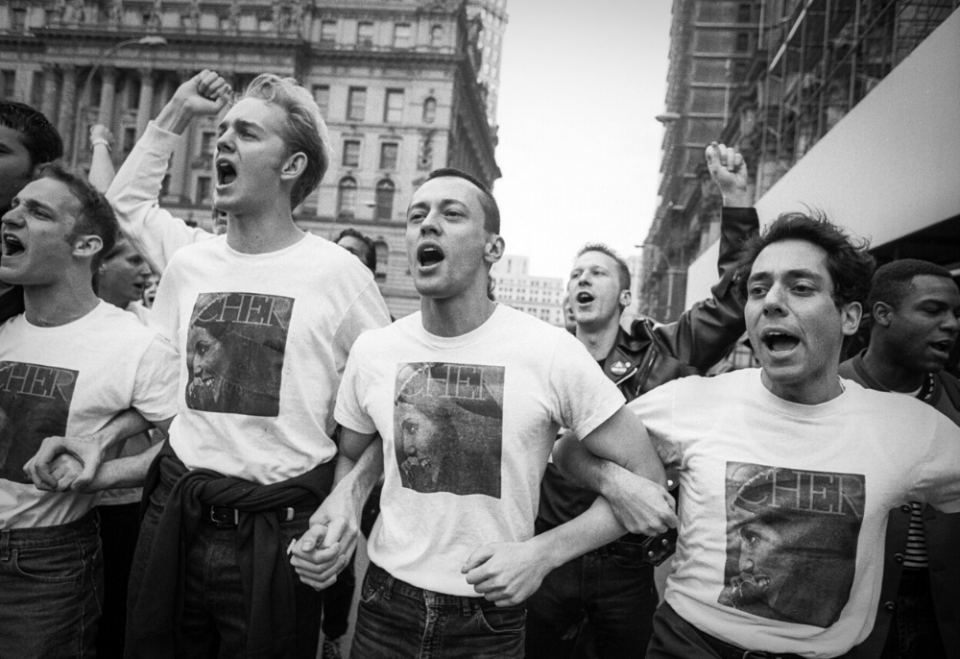
“Embrace Diversity. It’s Good Business v1.0” Event
19.04.2017
Coming Out
23.04.2017
LGBTI Teenagers
I remember being in a classroom with 9th graders, discussing the various stereotypes related to sexual orientation. At the beginning of the class most of the students were ready to put labels, to laugh out loud and to jump into the wrong conclusions. Thankfully, by the end of this dynamic hour they had lost their confidence in judging people by their gender identity or sexual orientation. However, most of them didn’t care to notice that there was a boy in the classroom, sitting awfully quiet. His name was Petar*. He was a gay teen.
He had many friends, even among those who were talking negatively about the LGBT community. However, it took him a hell of a time to come to terms with his sexuality and finally when he was in grade 11 he came out in front of his friends. I remember the shame, the scary thoughts when he talked to me during these chaotic years of realization, of hiding, him trying to change how he felt and who he was. Oh, I remember the questions his parents asked me as well (but that you can find in the „Parents“ section.
I will try to communicate to you, teens, the same things I said to him, with the hope of making your journey a bit easier. But let’s be straight about one thing from the beginning:
You are who you are. A human being like everyone else, with fears and expectations, with ups and downs, with dreams – lost and found.
Let me guess, you are probably in love too. And who says that if you are in love with your best friend (just saying) who happens to be the same sex as you are, then you are sick, mentally challenged, at risk of developing a psychiatric illness, or you are confused in a “phase in your life”?
Well, probably you will hear that a lot – from friends, acquaintance, family members, teachers. Let’s leave that for now and focus on you.
How do you feel?
I bet right now you probably feel lost, confused or scared. You are an LGBT teen – you are not sick. Go back in time and think when did you first realize you were attracted to people from your sex? Now, it felt natural right? What make it difficult are the social expectations of those around you.
If we leave those things aside and take a look at your feelings – then they are absolutely ok. And when we add the fact that it was not a matter of you choosing, it is just how you feel, then who should change? You or the expectations of your parents, family and friends? I am betting on the second option. If your parents react with one of the most common statements – “We need psychological help to fix you!” – then please stay calm and try to explain to them that you are not experiencing any kind of psychological disturbance, you are not under stress, you have not been raped in the past to form this “behavior” now, you are not delusional.
Thankfully, we live in times when the tolerance levels are reaching higher levels and medical and psychiatric professionals do not approach homosexual orientation as a mental illness. If your parents need to read more about LGBTI issues, please give them the following link.
How do you know?
You might get the question: “How do you know you are gay if you have not had sex yet?” Well, the initial response to that assumption by your straight friends should be “How did you know you were heterosexual then?”
The sexual orientation is something deeply rooted in our personality and it dictates who we are attracted to even before we experience our first sexual encounters. You might like communicating with people from the opposite sex, but never feel any kind of attraction towards them. It is perfectly ok.
Come on, no one is born gay!
A great deal of studies nowadays suggests that sexual orientation is the result of both biological and environmental factors, and it is definitely not a matter of choice. The world’s largest twin study conducted in Queen Mary, University of London, concluded that homosexual orientation is largely shaped by genetics and random environmental factors. Thus, the factors are complex – there is no single gay gene, or a single environmental factor.
Heterosexual behavior is also shaped by complex factors, which points to the conclusion that no matter what kind of sexual orientation – it is a result of a mixture of genetic and environmental factors. Most people experience little or no sense of choice regarding their sexuality. So yes, the development of sexual orientation is in place very early in the life cycle, even before birth.
So, if you are gay then you behave “lady-like” and if you are a lesbian, then you act like a man?
You might get that stereotypical assumption. This is how you should respond. As much as it is normal for every individual to form labels for everything we see, feel, touch, know, most of the times stereotypes are old-fashioned. (I recommend that you check our Glossary , to get to know all the various aspects of LGBTI identities).
Sexuality shouldn’t be a way of assuming how someone behaves. Sexuality is just one attribute to our personality, remember that. Go back to Petar from the beginning of this article – no one assumed he was gay until he said so. There was no label written on his forehead. This is another reason to be more sensitive about loudly offending someone – you never know who is listening.

So, who is the “man” and who is the “woman” in a gay relationship?
These role-types that we assume are sooo old-fashioned. Talking about the roles in a so-called traditional family – I personally know of so many stay-at-home dads and career-oriented moms. And that’s ok. People are very diverse and create relationships as they suit them. In our modern world the assumed roles in every relationship are changing, so be open-minded about your own feeling and position with your loved one.
Will you ever have a “normal” relationship?
Hell yeah! Some people think that everything different from a relationship between heterosexual people is not “the real thing”. There have been statements that gay people are promiscuous and they are somehow programmed to not stay monogamous. However, let me tell you that LGBTI people are perfectly capable of forming healthy, long-lasting, loving relationships. Same-sex couples are as likely to succeed or fail as opposite-sex couples. It has to be said though, that one reason why same-sex relationships sometimes seem harder to keep, is the homophobia in the society and the feeling that you have to “fight against the whole world”. A relationship is established/broken by people – their qualities, strengths, weaknesses – not their gender identity or sexual orientation.
Will you get infected with HIV more easily just because you are gay?
HIV can affect anyone, regardless of their sexual orientation, skin color, gender identity, age, religion. HIV is passed from an infected person through unprotected sex (anal or vaginal), drug use – sharing needles, contaminated blood, from mother to child. What depends on you is to protect yourself against HIV and other sexually transmitted diseases by using condoms!




